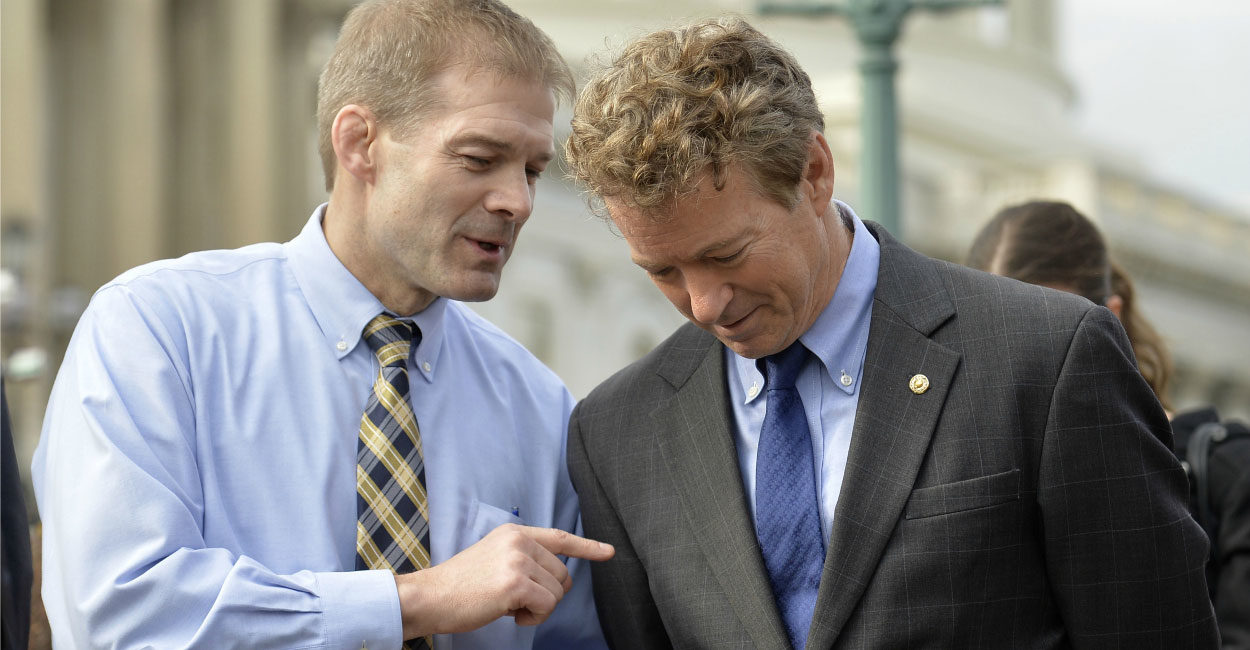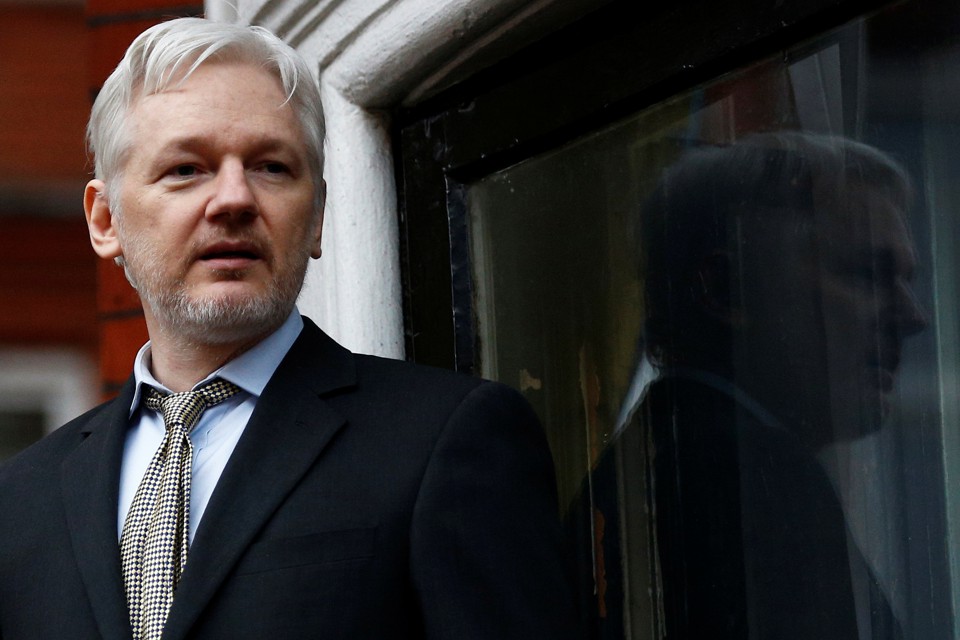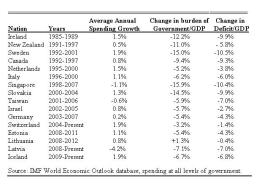On Christopher Columbus, the Far Left Is Correct

By the time Christopher Columbus appeared in Lisbon in 1477 an Old World slave trade was thriving in the eastern Atlantic between West Africa, the Atlantic islands, and Europe. In his famous letter on his first voyage he informed Ferdinand and Isabella he could, with their help, give them "slaves, as many as they shall order." On his second voyage Columbus loaded five hundred Indian slaves aboard returning caravels. On the last leg of his voyage to Cadiz, "about two hundred of these Indians died," a passenger recorded, appending, "We cast them into the sea." In this manner the discoverer of the New World launched the transatlantic slave trade, at first in Indians and from west to east. --James Rawley, with Stephen Behrendt, The Transatlantic Slave Trade
Was Obama Really the "Deporter in Chief?" Not Even Close

Immigration activists repeated named Obama the "Deporter in Chief." Were they right? Strictly speaking, yes:
More human beings were deported under Obama than any other presidency
in history. Substantively, however, the critics were very wrong. Key
fact: U.S. immigration law - and U.S. immigration statistics - makes a big distinction between full-blown deportations ("Removals") and "voluntarily" returning home under the threat of full-blown deportation ("Returns").
The distinction is not entirely cosmetic. If you re-enter after Removal, you face a serious risk of federal jail time if you're caught. If you re-enter after a mere Return, you generally don't. But Return is still almost as bad as Removal, since both exile you from the country where you prefer to reside. Since I've previously suggested that we should count each Return as 85% of a Removal, I've constructed a "Deportation Index" equal to Removals + .85*Returns to capture the substance of U.S. immigration policy. Check out the numbers:
The distinction is not entirely cosmetic. If you re-enter after Removal, you face a serious risk of federal jail time if you're caught. If you re-enter after a mere Return, you generally don't. But Return is still almost as bad as Removal, since both exile you from the country where you prefer to reside. Since I've previously suggested that we should count each Return as 85% of a Removal, I've constructed a "Deportation Index" equal to Removals + .85*Returns to capture the substance of U.S. immigration policy. Check out the numbers:
Liberty and "Social" Justice for All Is Impossible

Recently, Harvard political theorist Danielle Allen wrote in the Washington Post about “The most important phrase in the Pledge of Allegiance”—“with liberty and justice for all.”
Allen recognizes that justice requires “equality before the law” and that “freedom is freedom only when it is for everyone.” But she confuses democracy with liberty, which is very different. She also replaces the traditional meaning of justice (“Giving each his own”) with an inconsistent version of “social justice.” And the two primary examples she cites, rights to education and health care, are inconsistent with both liberty for all and justice for all.
Allen recognizes that justice requires “equality before the law” and that “freedom is freedom only when it is for everyone.” But she confuses democracy with liberty, which is very different. She also replaces the traditional meaning of justice (“Giving each his own”) with an inconsistent version of “social justice.” And the two primary examples she cites, rights to education and health care, are inconsistent with both liberty for all and justice for all.
Can Having More Babies Save the Welfare State?

Many of our entitlement programs were created based on the assumption that we would always have an expanding population, as represented by a population pyramid. …however, we’ve seen major changes in demographic trends, including longer lifespans and falling birthrates. The combination of these two factors means that our population pyramid is slowly, but surely, turning into a population cylinder. …this looming shift in America’s population profile means massive amounts of red ink as the baby boom generation moves into full retirement.
Adam Davidson on Immigration
 |
| Illustration by Andrew Rae, source New York Times |
Adam Davidson has a very nice New York Times Magazine article, "Debunking the Myth of the Job-Stealing Immigrant", in favor of "radically open borders."
Here's how a top professional journalist and writer puts together the central argument, so much more cleanly than I can do it:
So why don’t we open up?
The chief logical mistake we make is something called the Lump of Labor Fallacy: the erroneous notion that there is only so much work to be done and that no one can get a job without taking one from someone else. It’s an understandable assumption. After all, with other types of market transactions, when the supply goes up, the price falls. If there were suddenly a whole lot more oranges, we’d expect the price of oranges to fall or the number of oranges that went uneaten to surge.
EconTalk
John Cochrane's blog
As in other recent projects (growth essay, testimony) I'm trying to synthesize, and also to find policies and ways to talk about them that avoid the stale left-right debate, where people just shout base-pleasing spin ever louder. "You're a tax and spend socialist" "You just want tax cuts for your rich buddies" is getting about as far as "You always leave your socks on the floor" "Well, you spend the whole day on the phone to your mother."
We did this as an interview before a live audience, at a Chicago Booth alumni event held at Hoover, so it's a bit lighter than the usual EconTalk. This kind of thought helps the synthesis process a lot for me. Russ' pointed questions make me think, as did the audience in follow up Q&A (not recorded). Plus, it was fun.
Rothwell on Autor, Dorn and Hanson
Rothwell on Autor, Dorn and Hanson

A number of people have asked me to comment on a new paper by Jonathan Rothwell, which criticizes a study by Autor, Dorn and Hanson (ADH) on the impact of Chinese imports on the US job market.
I conclude that the economic losses from trade are not as severe as the economics literature currently implies. Workers in the most import-exposed sectors face a risk of layoff and unemployment that is comparable to workers in other sectors, where competition comes almost exclusively from domestic businesses. While it is likely that less import competition would further lower the risk of displacement and boost wages for manufacturing workers, less competition would likely lead to a reduction in the ratio of product quality to price and a drop in consumer welfare. I accept the Autor et al. (2014) finding that import competition lowers wages for U.S. workers in the affected industries — but even still, I find that workers in the manufacturing sector continue to earn a sizable wage premium compared to those with similar experience and education levels in other sectors.
Power-Hunger
 | ||||
|
| ||||
Rand Paul, Other Conservatives Buck Leadership by Reviving 2015 Obamacare Repeal

Rep. Jim Jordan, R-Ohio, and Sen. Rand Paul,
R-Ky., are among conservatives pushing for Congress to again pass its
original Obamacare repeal. (Photo: Mike Theiler/UPI/Newscom)
Sen. Rand Paul, R-Ky., has
reintroduced an Obamacare repeal bill that passed both houses of
Congress in 2015, highlighting conservatives’ dissatisfaction with
Republican leadership’s new bill to replace the health care law.
Paul stressed that the language is the same as the repeal legislation that Republicans in the House and Senate passed and sent to President Obama, which he vetoed in January 2016.
“The Republican Party is unified on Obamacare repeal,” Paul said in a prepared statement Thursday, adding:
“We can honor our promise right away by passing the same language we acted on in the last Congress. Then, we can have a separate vote on replacement legislation that will deliver lower costs, better care, and greater access to the American people.
Paul stressed that the language is the same as the repeal legislation that Republicans in the House and Senate passed and sent to President Obama, which he vetoed in January 2016.
“The Republican Party is unified on Obamacare repeal,” Paul said in a prepared statement Thursday, adding:
“We can honor our promise right away by passing the same language we acted on in the last Congress. Then, we can have a separate vote on replacement legislation that will deliver lower costs, better care, and greater access to the American people.
What’s wrong with giving the sandwichmakers a raise? By Tim Worstall

Blessed be the sandwichmakers: rows of Classic New Yorkers at Pret A Manger
Another day, another penny drops about
the effects of Brexit. It seems it could cause low-end wages in Britain
to rise. And we can’t have that, can we?
Today’s outbreak of indignation over this comes courtesy of Pret A Manger.
Their HR boss, Andrea Wareham, told the House of Lords Economic Affairs
Committee than hardly any Brits ever wanted to work in the sandwich
chain. Instead, they had to hire from some 110 nationalities, 65 per
cent of them from the EU. Brexit would cut off access to that source of
labour.
Ms Wareham also told us all that she could
not fill her vacancies if she were only to hire Brits. She added: “I
actually don’t think increasing pay would do the trick.”
Donald Trump and the meaning of America
@alexmassie

Donald Trump at the Republican national convention. Photo: Win McNamee / Getty Images
Beneath
the cartoonish histrionics, Donald Trump’s presidency already matters.
Indeed, it is the mirror image of his predecessor’s, the second part of a
drama entitled “What does being American mean?”
Barack
Obama offered one, impeccably liberal, answer to that question; Donald
Trump offers another. One that is visceral, not intellectual; nativist,
not universal. This is the real struggle at the heart of Trump’s
presidency – and it is one that will have spillover effects elsewhere,
not least in the United Kingdom.
Beneath the
bluster of “Make America Great Again” – that being but a muscular riff
on a tried-and-tested campaign formula – there lies something vastly
more essential. It is the idea that, as Steve Bannon, Trump’s most
interesting adviser, has put it, the United States is “a nation with a
culture”, and a very particular culture at that: initially Anglo-Saxon
and Protestant, now more generally Judeo-Christian.
Should Journalists Be More Cautious of WikiLeaks?
With its latest leak, the site is daring reporters to go on a scavenger hunt for scoops.

Since around the
time of the presidential election in November, the U.S. media has taken a
hard look at its tumultuous love affair with WikiLeaks. News
organizations had lapped up the documents that the site was churning
out: first, thousands of emails from the Democratic National Committee,
then thousands more from the personal Gmail account of Hillary Clinton’s
campaign manager, John Podesta.
The U.S. intelligence
community now says the emails were stolen by Russian hackers and passed
along to WikiLeaks for publication, an allegation Assange continues to
deny. As the source of the leaked information came into focus, some news
organizations began to rethink their eager participation in amplifying
it. “Every major publication, including The [New York] Times,
published multiple stories citing the DNC and Podesta emails posted by
WikiLeaks, becoming a de facto instrument of Russian intelligence,” the Times wrote in a detailed postmortem of Russia’s meddling around the U.S. election.
Our Doom and Gloom Media Is Animal Farm in Reverse

On Sunday mornings Squealer, holding down a long strip of paper with his trotter, would read out to them lists of figures proving that the production of every class of foodstuff had increased by two hundred per cent, three hundred per cent, or five hundred per cent, as the case might be. The animals saw no reason to disbelieve him, especially as they could no longer remember very clearly what conditions had been like before the Rebellion. All the same, there were days when they felt that they would sooner have had less figures and more food.
How Fidel Castro is Like the Minimum Wage

Still, by the bloody standards of Communist dictators, Castro's rule was mild. Castro's Cuba doesn't even look like the biggest charnel house in modern Latin America. The Guatemalan Civil War (1960-1996) probably claimed more innocent lives. Indeed, multiple U.S. Presidents have killed more civilians than Castro - though of course they had the power to murder vastly more. Why then should we dwell on the horrors of Castroism - or make a point of dancing on Fidel's grave?
Here's why: Because Castro is a symbol of larger evils - evils that claimed many millions of lives - and could do so again. Castro symbolizes the idea that backwards countries can and should take the following path to modernity:
How Econ Textbooks Sanitize the Horrors of Communism

At least that's what my admittedly flawed memory says.
New “Tax Oppression Index” Shows Grim Toll of OECD’s Statist Agenda
DAN MITCHELL
 Pierre
ranked the then-30 member nations of the Organization for Economic
Cooperation and Development based on their tax burdens, their quality of
governance, and their protection of financial privacy.
Pierre
ranked the then-30 member nations of the Organization for Economic
Cooperation and Development based on their tax burdens, their quality of
governance, and their protection of financial privacy.Switzerland was the top-ranked nation, followed by Luxembourg, Austria, and Canada.
Italy and Turkey were tied for last place, followed by Poland, Mexico, and Germany.
The United States, I’m ashamed to say, was in the bottom half. Our tax burden was (and still is) generally lower than Europe, but there’s nothing special about our quality of governance compared to other developed nations, and we definitely don’t allow privacy for our citizens (though we’re a good haven for foreigners).
Pierre’s publication was so helpful that I’ve asked him several times to release an updated version.
I don’t know if it’s because of my nagging, but the good news is that he’s in the final stages of putting together a new Tax Oppression Index. He just presented his findings at a conference in Panama.
The United Kingdom and the Benefits of Spending Restraint
DAN MITCHELL
I’m motivated instead by a desire to shrink the burden of government spending, so I argue for spending restraint rather than tax hikes that would “feed the beast.”
And folks on the left want bigger government, so they argue
 for tax hikes to enable more spending and redistribution.
for tax hikes to enable more spending and redistribution.I feel that I have an advantage in these debates, though, because I share my table of nations that have achieved great results when nominal spending grows by less than 2 percent per year.
The table shows that nations practicing spending restraint for multi-year periods reduce the problem of excessive government and also address the symptom of red ink.
Centralization and the Decline of Europe
DAN MITCHELL
The famous French diplomat Charles Maurice de Talleyrand supposedly said that a weakness of 
the Bourbon monarchs was that they learned nothing and forgot nothing.
If so, the genetic descendants of the Bourbons are now in charge of Europe.
But before explaining why, let’s first establish that Europe is in trouble. I’ve made that point (many times) that the continent is in trouble because of statism and demographic change.
What’s far more noteworthy, though, is that even the Europeans are waking up to the fact that the continent faces a very grim future.
For instance, the bureaucrats in Brussels are pessimistic, as reported by the EU Observer.

the Bourbon monarchs was that they learned nothing and forgot nothing.
If so, the genetic descendants of the Bourbons are now in charge of Europe.
But before explaining why, let’s first establish that Europe is in trouble. I’ve made that point (many times) that the continent is in trouble because of statism and demographic change.
What’s far more noteworthy, though, is that even the Europeans are waking up to the fact that the continent faces a very grim future.
For instance, the bureaucrats in Brussels are pessimistic, as reported by the EU Observer.
…the report warns of a longer term risk for the EU economy. “As expectations of low growth ahead affect investment today, there is potential for a vicious circle,” the commission’s director general for economic and financial affairs writes in the report’s foreword. “In short, the projected pace of GDP growth may not be sufficient to prevent the cyclical impact of the crisis from becoming permanent (hysteresis), ” Marco Buti writes.



No hay comentarios.:
Publicar un comentario